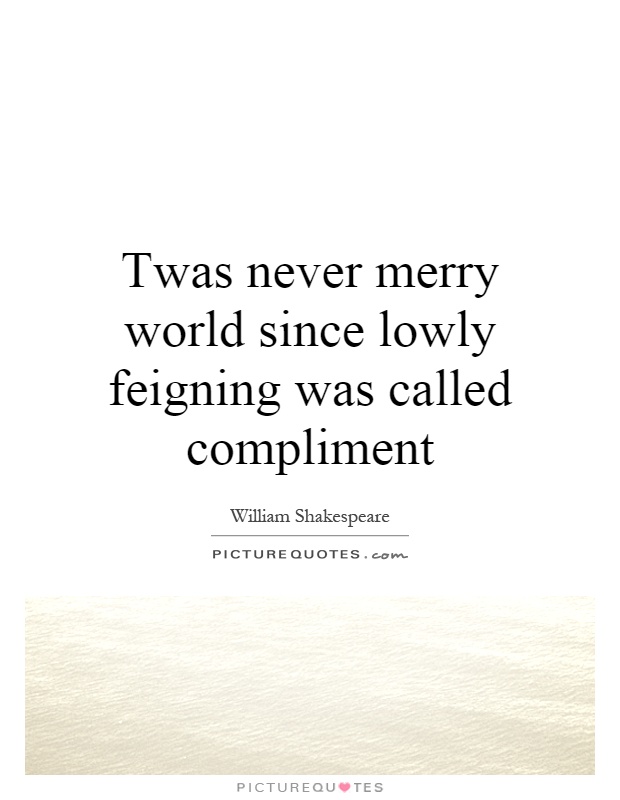Twas never merry world since lowly feigning was called compliment

Twas never merry world since lowly feigning was called compliment
In the world of William Shakespeare, the art of flattery and deceit was often used as a means to an end. In his plays, characters would often use compliments and false pretenses to achieve their goals, whether it be to win someone's favor, gain power, or manipulate others. The quote "Twas never merry world since lowly feigning was called compliment" speaks to the idea that the world has never been a happy or genuine place since insincere flattery became known as a form of praise.Throughout Shakespeare's works, we see characters using compliments as a tool to manipulate and deceive others. In "Othello," Iago uses flattery to manipulate Othello into believing that his wife, Desdemona, is unfaithful. He pretends to be Othello's loyal friend while secretly plotting his downfall. In "Julius Caesar," Cassius uses flattery to manipulate Brutus into joining the conspiracy to assassinate Caesar. He appeals to Brutus's sense of honor and patriotism, using compliments to stroke his ego and win him over to his cause.
Shakespeare also explores the darker side of compliments and flattery in his comedies. In "Twelfth Night," the character Malvolio is deceived by a forged letter that praises him and leads him to believe that his mistress, Olivia, is in love with him. This false praise ultimately leads to his humiliation and downfall. In "Much Ado About Nothing," the character Don John uses flattery to deceive Claudio into believing that his fiancée, Hero, has been unfaithful. This deception nearly ruins Hero's reputation and threatens to destroy her relationship with Claudio.
Overall, Shakespeare's works show us that compliments and flattery can be used for both good and evil. While they can be used to win favor and manipulate others, they can also be used to deceive and destroy. The quote "Twas never merry world since lowly feigning was called compliment" reminds us that in a world where insincere flattery reigns, true happiness and authenticity are hard to come by.












 Friendship Quotes
Friendship Quotes Love Quotes
Love Quotes Life Quotes
Life Quotes Funny Quotes
Funny Quotes Motivational Quotes
Motivational Quotes Inspirational Quotes
Inspirational Quotes